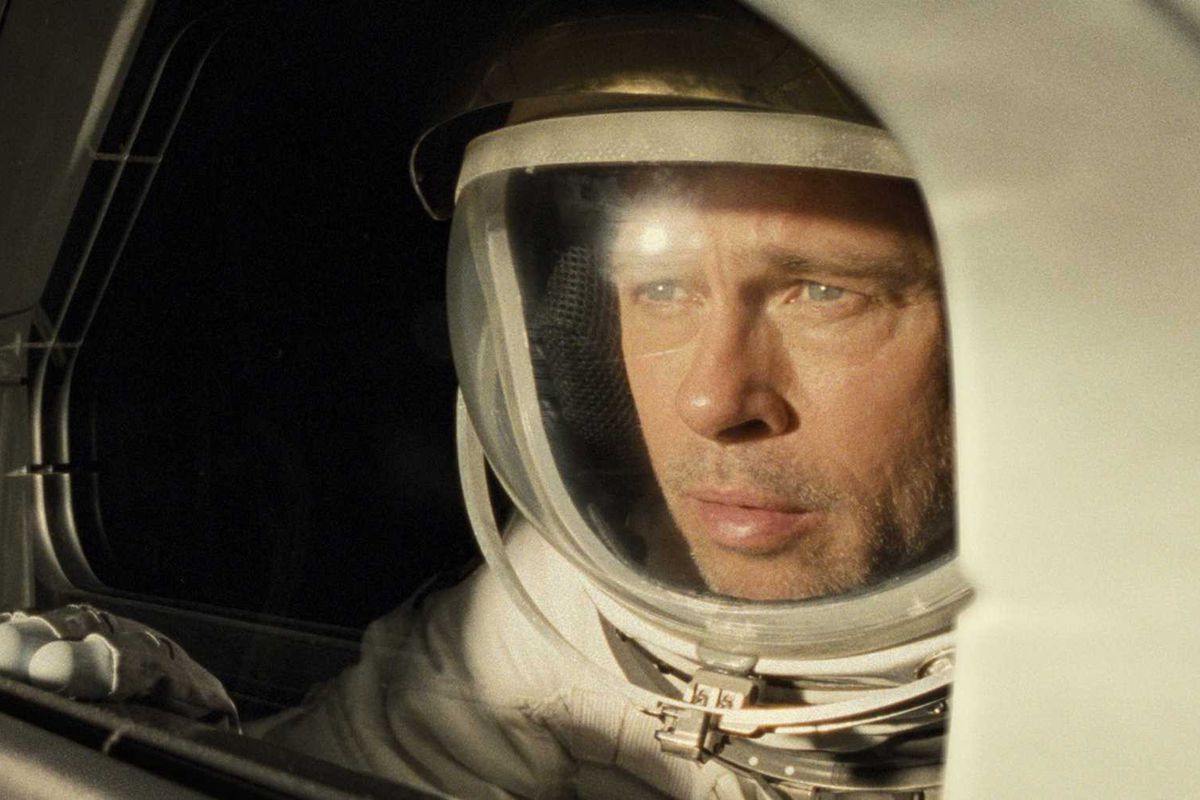

Ad Astra
The sci-fi/space film genre is one that is almost puzzling at a glance. The likes of Interstellar, Gravity, and now, Ad Astra are sold to us as these high-stakes thrilling films set in the most unknown realm of our universe. Once your butt is in the seat though, you’re subjected to existential dramas that dig deep into the human mind, our emotions, and you realize that the stars aren’t really what the movie is about.
Ad Astra is the newest entry in this genre and sees astronaut Roy McBride (Brad Pitt) on a mission to make contact with his father (Tommy Lee Jones) who went missing while orbiting Neptune 16 years ago. What is depicted in the trailers is something that makes you think you’re going on a real summer adventure and while those thrills are there, the meat of Ad Astra lies within its themes and emotional core.
We’re introduced to McBride as a man who has stripped away all his emotional vulnerabilities and connection to others for the sake of staying focused on his job. He isn’t emotionally available, he’s shut himself off. In other movies, this might be portrayed in a much more macho-man, masculine way. Brad Pitt plays it in a way that’s cold and on the verge of becoming robotic.
That’s not a knock, this is by far and away one of Brad Pitt’s best performances because as you go deeper into the film… everything he has tried to keep at bay for so long begins to surface. Ad Astra is a film about “toxic masculinity”. It’s about men trying to maintain a persona or image rather than allowing themselves to feel vulnerable, to feel emotions that could be perceived as a weakness.
Sadness, love, and that general emotion of weakness and not having the answers are posed as things that jeopardize a mission. As you watch Pitt ascend to the stars but ultimately descend into his emotions and thoughts, you see the kind of pain that is only brought out when you don’t take time to deal with the trauma you keep setting aside. It can’t be brushed under the rug for another time otherwise it attacks you and consumes you all at once and at the worst time.
There’s a certain irony to it all after seeing Pitt be one of the biggest badasses of the summer as Cliff Booth in Once Upon a Time in Hollywood. He oozes manly-man qualities with the ability to handle any tense situation with ease and a cool-guy, carefree attitude which allows him to cruise through LA in a way only youthful teenagers could dream of.
This is a role only he could’ve tackled, though. He’s played badasses but he’s also gone through tumultuous events in real life that, as an outsider looking in, seem to be paralleled in Ad Astra. The raw suffering and mental hurt that he portrays in this film don’t come off as acting, it feels authentic and genuine… like he’s channeling himself and not the fictional astronaut.
Of course, Pitt is not the only gem to be found in this film. Director James Gray brings his A-game with tense setpieces, masterful filmmaking across visuals and audio, and a believable near-future world. Everything about the world of Ad Astra feels like the logical evolution of technology, space travel, and society as we know it.
It’s a world where going to the moon is not only no longer an accomplishment but it’s a place you can board a ship to like you’d board a plane going to Florida for a vacation. Gray builds a world that feels like a real place rather than window dressing for his incredibly philosophical and self-reflective tale. He doesn’t let the sci-fi stuff take a backseat just because it’s not the real meat and potatoes of the film, despite it being ever so present at all times.
Sometimes Gray indulges a bit too much in extended sequences of slow burns. Whether that’s a montage or just watching a character perform every possible step to accomplish their task at hand. Those who think 2001: A Space Odyssey or Blade Runner drone on a bit too much will see a bit of that here but it doesn’t totally kill the pacing of the film.
The Verdict
As Ad Astra came to its closing moments, I sat there glued to the screen in a way few other movies this year have captured me. It wasn’t a moment of spectacle. It wasn’t a brash moment of heroism or a triumphant act that’s bolstered by a swell of orchestral music. It was a quiet, intimate moment that caused self-reflection. An epiphany.
As the screen cut to black, I felt like director James Gray shook my brain, my soul, and my heart. He made me understand something that I had struggled to understand for most of my life, maybe even something I didn’t even know I was struggling to understand.
In the vastness of space where we search for other forms of life, habitable planets, and more… Gray found something possibly far more valuable. He found a uniquely human tale.
To kick off 2021, we have a glorious return to one of the best franchises…
Last summer, we got our first official look at Hogwarts Legacy. The RPG set in…
Today, it was revealed that Ubisoft would be helming a brand-new Star Wars game. The…
Housemarque shared lots of new details about their upcoming PS5 game Returnal. Today, we learn…
Huge news concerning the future of Star Wars games just broke out. Newly revived Lucasfilm…
GTA 5 is probably the biggest game of all-time. It has sold over 135 million…